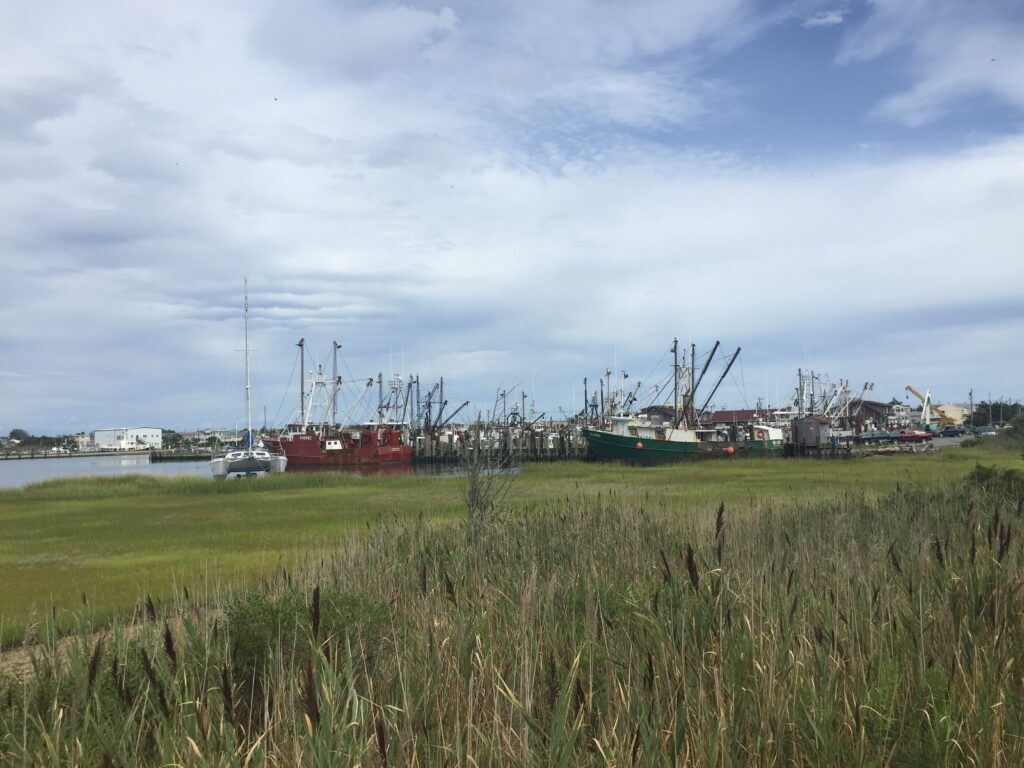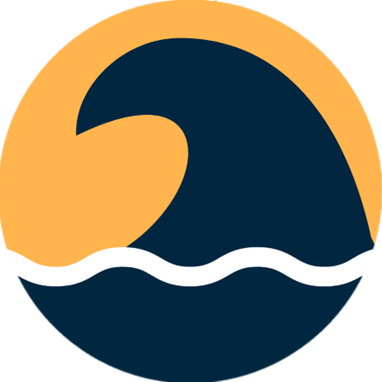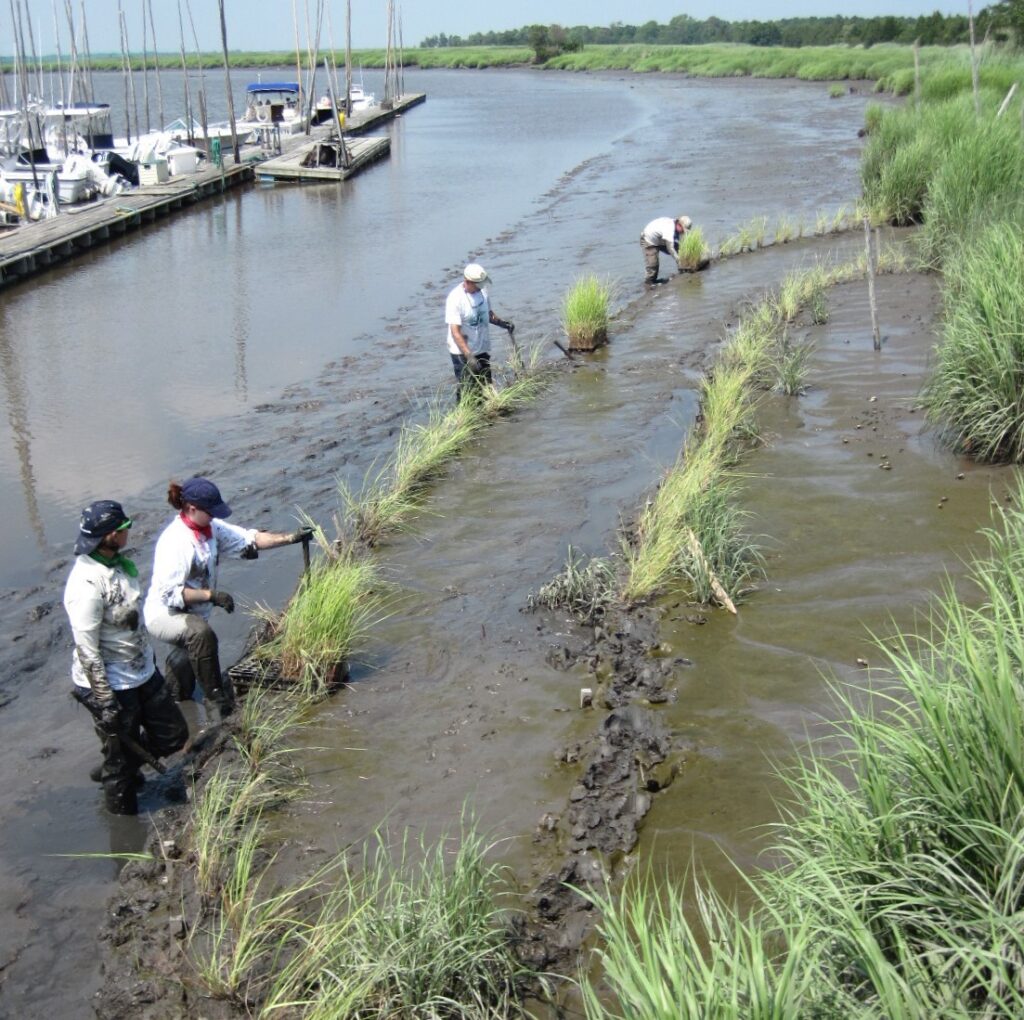Main Content
Commercial Fishing Industry Resilience Self-Assessment
With funding from the New Jersey Sea Grant Consortium, JC NERR led a partnership with Rutgers Fisheries Cooperative Center, Rutgers Cooperative Extension, and Rutgers Center for Remote Sensing & Spatial Analysis to develop a resilience self-assessment tool for New Jersey’s commercial fishing communities. Working directly with fishing communities, the project team adapted existing fisheries resilience tools developed for the Gulf of Mexico and Alaska for use in New Jersey. In addition to questions about coastal hazard risk assessment and preparedness, the New Jersey tool will include questions about resilience to climate-induced shifts in fisheries dynamics. The self-assessment tool was reviewed by fishing communities and fisheries managers, revised by the project team, and made available for use statewide (January 2023).

Risk Communication: A Campaign for Coastal New Jersey

The NJDEP Coastal Management Program (CMP) was awarded funds to partner with the New Jersey State Council on the Arts (Arts Council) and the Jacques Cousteau National Estuarine Research Reserve (JC NERR) to develop a replicable risk communications campaign that will address the need of local decision-makers to have tools to better communicate the risks and impacts of coastal hazards.
Centered around the theme of “Know Your Tides,” the first campaign sought to increase public awareness and understanding of coastal flood risks due to high tides and sunny day flooding.
The second campaign, “Rising Together NJ”, was a social media campaign that encouraged people to come together through their experiences with flooding in New Jersey by sharing a flood story. The project team has partnered with informal education organizations across New Jersey to help promote the campaign, which included a social media campaign and materials for websites, newsletters, and other outreach. The materials from these campaigns now live on MyCoast: New Jersey where community members can continue to learn about tides, sunny day flooding, and share their flood stories (September 2022).
NJ Coastal Ecological Restoration and Adaptation Plan
JC NERR was part of a team led by Rutgers University that is working with the NJDEP to develop a Coastal Ecological Restoration and Adaptation Plan (CERAP) for New Jersey’s coastal marshes, estuaries, and bays. The project resulted in a public web-based map and decision-support tool with data on coastal issues of concern and an atlas of potential restoration sites. Stakeholders across the state have nominated sites to ensure the CERAP is informed by both local and state goals, which include enhancing carbon sequestration, ecosystem health, and community resilience.

Visit the NJDEP project website for more information.
Investigating the Interconnectedness of Climate Change, Nuisance Mosquitos, and Resilience of Coastal Salt Marsh Systems
This project increased clarity about marsh habitat change to inform mosquito control and coastal restoration efforts in New Jersey through data collection, mapping, and modeling. Project outputs included environmental DNA assays for common salt marsh mosquitoes, advancement of mosquito surveillance through drone-based sampling of breeding pools, and educational materials about mosquito health risks. (November 2020)
NJ Fostering Regional Adaptation through Municipal Economic Scenarios (FRAMES)
A collaborative effort in coastal Monmouth County, NJ, to understand and begin to address future flood vulnerability by developing a long-term Regional Resilience and Adaptation Action Plan that identifies ways communities can together address risks and impacts. (December 2019)
Past Trainings & Webinars
Using MyCoast NJ App to Capture Important Weather & Climate Related Events in your Community
MyCoast: New Jersey is a platform where community scientists can share photos and stories to document impacts of flooding due to rain, storms, or high tides and changes to our environment over time. The collected data helps determine how often a community is flooding and where, leading a collaborative effort to identify and prioritize climate change resilience strategies and make informed management decisions for New Jersey. Learn how to use the app from the NJDEP and the Jacques Cousteau National Estuarine Research Reserve who partnered together to create this platform. We will also hear from a former Aberdeen Environmental Board member on how this app is being used locally. (June 2024)
Using Coastal Monitoring Data in Decision-Making: Resilient Management at Sandy Hook, NJ
This virtual training demonstrates how coastal monitoring data can be easily collected and analyzed to measure coastal change and make more resilient management decisions. Includes presentations from Dr. Norbert Psuty of Rutgers University and Pete McCarthy of Gateway National Recreation Area. (April 2021)
Estuary Research: Engaging the Five Senses
In this webinar, researchers from three mid-Atlantic NERRs – Jacques Cousteau, Delaware, and Chesapeake Bay, VA – share current projects through the lens of the five senses. (April 2021)
Cost and Effectiveness of Living Shorelines: An Analysis of Five New Jersey Projects
This webinar shares the results of an analysis completed by The Nature Conservancy and Stevens Institute of Technology and includes a panel discussion with representatives of the living shoreline projects. (December 2020)
Diving into the Digital Coast: Nature-Based Solutions for Community Resilience
Hosted in partnership with the NOAA Office for Coastal Management and NJ Office of Planning Advocacy, this virtual training includes a demo of NJFloodmapper and resources available via NOAA’s Digital Coast website for implementing nature-based resilience solutions. (December 2020)